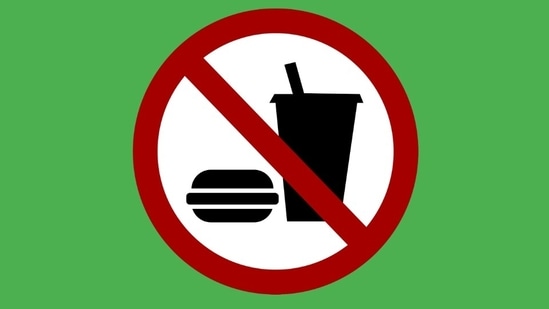
Fasting and women's health: Karwa Chauth fasting tips to avoid hormonal disruptions
6 months ago | 5 Views
It is that time of the year when married Hindu women prepare themselves for a day-long fast on the festival of Karwa Chauth, which will be celebrated in India on October 20 this year. However, it is imperative to consult a health expert before fasting to proceed without any problems and do what is right for your body. Fasting has long been acknowledged for its numerous health benefits but it can also negatively impact one’s health.
In an interview with Lifestyle, Dt Varsha Krishna Gade, Consultant- Dietitian and Nutritionist at Motherhood Hospitals in Pune, shared, “Unlike men, women may experience different hormonal responses because of fasting based on menstrual cycles and reproductive factors. Fasting can take a toll on one’s menses causing irregular periods, longer or shorter periods, or even no period, it can impact luteinizing hormone and ovulation, and it can trigger cortisol levels in the body. Hence, women need to be cautious while fasting during Karwa Chauth. It is imperative to follow these crucial tips given in the article below to stay healthy during fasting and avoid hormonal imbalance.”
She added, “Karwa Chauth is celebrated by women wherein they fast for their husbands. This festival signified a strong bond between the wife and husband. Navigating the challenges of Karwa Chauth fasting can be particularly sensitive for women, given the potential for hormonal disruptions. One potent strategy is to ensure proper hydration before the fast begins. It is imperative to drink enough water when one has her pre-dawn meal (Sargi). Doing so can help maintain your body's fluid balance throughout the day. In turn, you will be able to reduce stress and prevent fatigue.”

Dt Varsha Krishna Gade further advised, “Incorporate hydrating foods like cucumbers and watermelons into your Sargi can be beneficial. Sargi is an important ritual of this festival. One can also add nuts and seeds and ensure to eat them in the quantity recommended by the doctor. Ensure to opt for citrus and protein-rich foods. One has to eat mindfully during sargi to avoid hormonal imbalance. Don’t include any oily foods, eat foods that will give you energy to sustain throughout the day. If you feel that fasting is impacting your health then it is better to avoid fasting. Women should avoid doing any strenuous activities and instead do deep-breathing exercises to remain calm and composed as the fasting period can make them anxious and stressed. Choose sweets with natural sweeteners such as honey and jaggery instead of going for refined sugar. Moreover, the meals shouldn’t be spicy to prevent acidity.”
Bringing her expertise to the same, Dr Rajeshwari Panda, Head of the Dietetics Department at Medicover Hospital in Kharghar Navi Mumbai, echoed that while fasting can be a spiritual practice, it can also have implications for women's health, particularly when it comes to hormonal balance. She recommended some advanced tips to help you navigate Karwa Chauth fasting while minimising potential hormonal disruptions -
Understanding Hormonal Balance:
- Hormonal Interplay: Hormones play a crucial role in various bodily functions, including menstrual cycles, fertility, and overall well-being.
- Fasting and Hormones: Prolonged fasting can disrupt hormonal balance, especially in women who have underlying health conditions or irregular menstrual cycles.
Tips to Minimise Hormonal Disruptions:
1. Pre-Fast Preparation -
- Nutrient-Dense Diet: Prioritise a nutrient-dense diet in the days leading up to the fast, focusing on complex carbohydrates, lean proteins, healthy fats and plenty of fruits and vegetables.
- Hydration: Stay well-hydrated to support overall health and prevent dehydration-related hormonal imbalances.
2. Mindful Fasting -
- Listen to Your Body: Pay attention to your body's signals. If you experience dizziness, weakness or other symptoms, break the fast immediately.
- Avoid Strenuous Activity: Limit intense physical activity during the fast to prevent excessive energy expenditure and potential hormonal fluctuations.
3. Post-Fast Nutrition -
- Gradual Reintroduction: Avoid overeating immediately after breaking the fast. Gradually reintroduce foods to your diet to prevent sudden spikes in blood sugar levels.
- Nutrient-Dense Meals: Focus on meals rich in fiber, protein, and healthy fats to support hormonal balance and overall well-being.
4. Supplementation -
- Consult a Dietitian: If you have concerns about hormonal balance, consider consulting a dietitian to discuss potential supplementation options, such as B vitamins or magnesium, which may support hormonal function.
5. Chronic Conditions -
- Individualised Approach: If you have underlying health conditions like PCOS, thyroid disorders, or diabetes, consult with your healthcare provider for personalized fasting guidance.
6. Additional Considerations -
- Menstrual Cycle: If you have a history of irregular menstrual cycles, consider discussing fasting with your healthcare provider, especially if you are trying to conceive.
- Long-Term Fasting: While occasional fasting may be tolerable, frequent or prolonged fasting can have significant impacts on hormonal balance.
According to Dr Anu Sadashiv B, Consultant - Reproductive Medicine, Obstetric and Gynecologist at Milann Fertility Center in Bengaluru, “An increase in stress hormones, abnormal menstrual cycles, and metabolic disruptions can all result from brief alterations in hormonal balance brought on by prolonged fasting. Keep in mind that women's reactions to fasting vary based on many variables, including age and underlying medical issues.”

She cautioned, “Long-term meal skipping can cause blood sugar levels to fluctuate, which can then cause the stress hormone cortisol to be released. Further, leads to interference with reproductive hormones such as estrogen and progesterone whose imbalances can cause mood swings, irregular menstrual cycles, or fatigue. So women suffering from thyroids or PCOS (Polycystic Ovary Syndrome) should particularly be cautioned, as these health issues are sensitive to dietary changes and fasting has the potential to exacerbate the symptoms because of hormonal and metabolic imbalance.”
Therefore, some precautionary steps can be taken, such as:
1. Keeping yourself hydrated. Before starting your fast drink an ample amount of water, electrolyte liquids, coconut water contains potassium and salt that can leads to quickly energize your body, and cucumber, choose high water content fruits, etc as they can help to maintain cortisol levels and also blood sugar levels. Milk works as a great rehydrator.
2. While opening the fast choose light meals containing proteins and healthy fats, as these can help to manage insulin sensitivity which further prevents blood sugar spike levels and smooth hormonal regulations.
3. Choose slow-energy processing food such as sargi which can help you to feel full for a long period.
4. Keep yourself stress-free by doing some meditations, simple Yoga poses, relaxing and resting as these things can also maintain the levels of cortisol and hormones.
5. Stay away from caffeinated drinks as they can trigger acidity or digestion issues, increase insulin levels, dehydrate you, harm your sleep, or sometimes cause palpitations, anxiety, etc., and each of them is interlinked.
6. Prefer sargi with low sodium or avoid salty or processed foods as they can drain your water making you dehydrated and leading to thirsty and tired. Also, avoid sugary foods as they can shoot blood pressure.
7. Prefer eating fruits as they contain fiber and water content so they are soluble and help to prevent acid reflux. So, start your meal with fruits to restore your energy.
8. Last but not least check your blood sugar levels, do not overlook any reactionary signs and symptoms.
By following these tips and working closely with your healthcare provider, you can minimise potential hormonal disruptions associated with Karwa Chauth fasting and enjoy the spiritual experience while prioritizing your overall health.
HOW DID YOU LIKE THIS ARTICLE? CHOOSE YOUR EMOTICON !
#




















